Table of Contents (click to expand)
Your brain keeps your muscles engaged to account for small movements of the vehicle to ensure that your posture is properly maintained. These small movements cause your muscles to constantly work, which makes them tired over a long journey.
I have a few friends who like to go on long road trips. They want to get in their car and drive a few hundred miles carefree!
Me? I’m not like that at all.
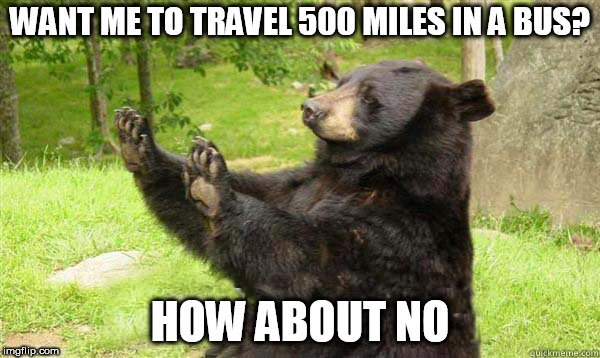
For me, traveling long distances by car or bus is just too tiring. I have wondered why traveling in moving vehicles tires me and many others.
Road trips can be dull, requiring you to sit in one place for hours with little mental stimulation. It feels like being in a waiting zone, just wanting time to pass until you reach your destination.
Note: This experience is subjective, and it isn’t universal. Some people feel excited by long-distance road travel. This article discusses only a few factors that make you tired after a long car, bus, or airplane journey.
Factors That Impact Passenger Comfort On The Road
Traveling on the road is not as easy as sitting in a chair. While on the journey, the moving vehicle changes speed due to traffic, causing you to jerk back and forth while winding roads will make sway along with the vehicle turns. If the vehicle is old, running on a rusty, vibrating engine with uneven seats, or the roads are dented with potholes, the ride is anything but stationary.
All these factors—the roads, the vehicle, and the traffic—affect your journey’s comfort.
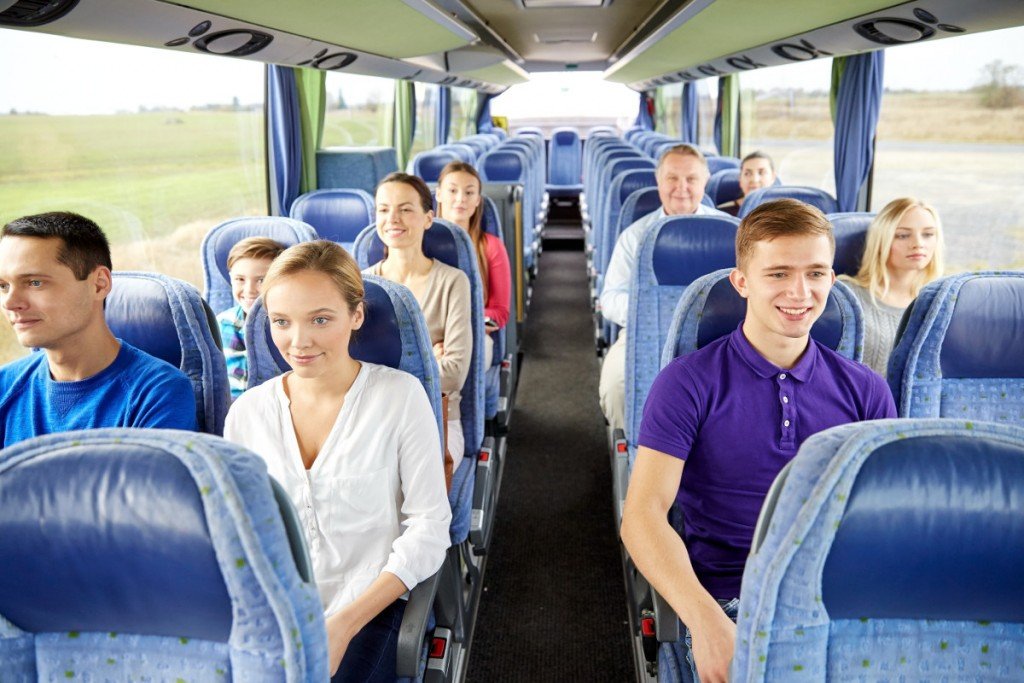
These sways, jerks, and jumps take their toll on the body, even though we are unaware of it. The brain accounts for movement and engages the muscles to ensure that your posture remains upright. This constant rally between the two organs—which can last more than 2-3 hours—is energetically costly. This is why standing hurts your legs more than walking.
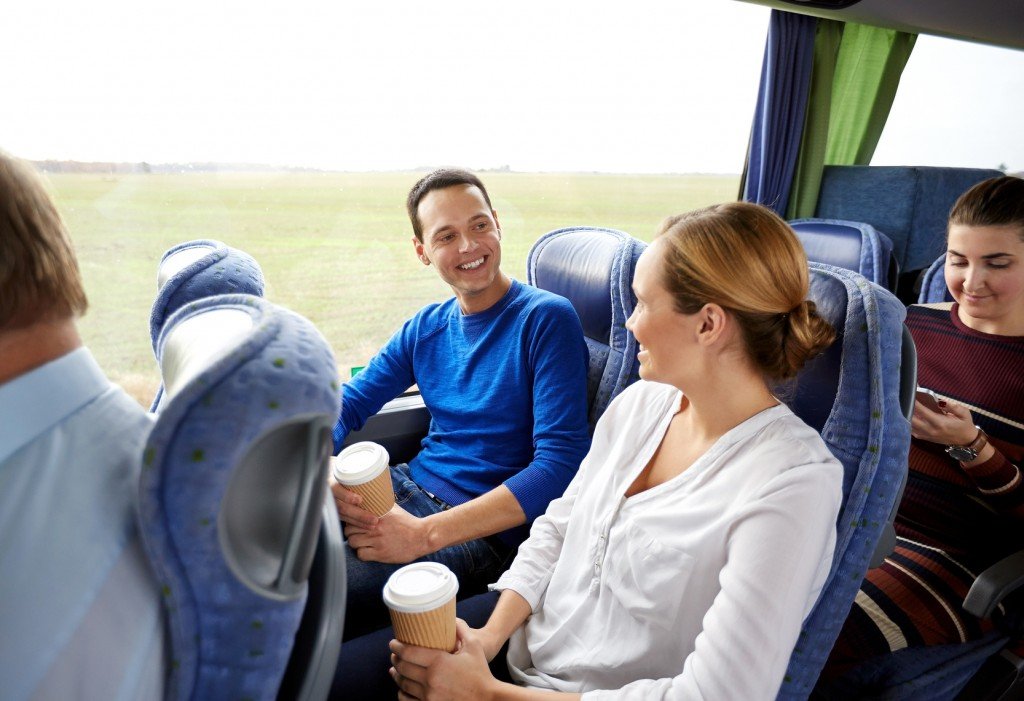
This is also why Formula One drivers train so much to stay in shape. Driving at over 200 km/h requires handling the significant G-forces and the pressure they exert on the body.

Here’s an interesting fact: Greger Huttu–a world champion of iRacing (a virtual racing simulator) – was invited to drive a real race car. He drove a few laps very fast, almost 100 km / h, but then threw up in his helmet because his body could not cope with the tremendous physical forces acting on it. He gave up on his 15th lap.
Trains are comparatively less tiring simply because they do not accelerate/decelerate and change direction as frequently as automobiles on the road.
Also Read: What Are The Physical Effects Of Formula One (F1) Racing On Drivers?
Fatigue-causing Factors In A Flight
Flights are no better than road vehicles when it comes to causing fatigue.
First of all, there is the matter of “height…” Your body needs to adjust to being higher up. Although the pressure in the cabin makes it a little easier to adjust to the change in height, it is still far from sitting in a chair in the bedroom.
Then there is dehydration: airlines maintain the pressure in the cabin by regulating the composition of the breathable air in the cabin. This is why cabin air is 15% drier than “ground air,” which dehydrates passengers. This is one of the many reasons that airplane food tastes so bad. Besides food tasting awful, long travel hours and high altitude affect the blood flow in your body. Your body has to work harder to circulate blood to the limbs in the face of unusually high altitude and dry air conditions, leading to digestive issues such as gas and bloating.
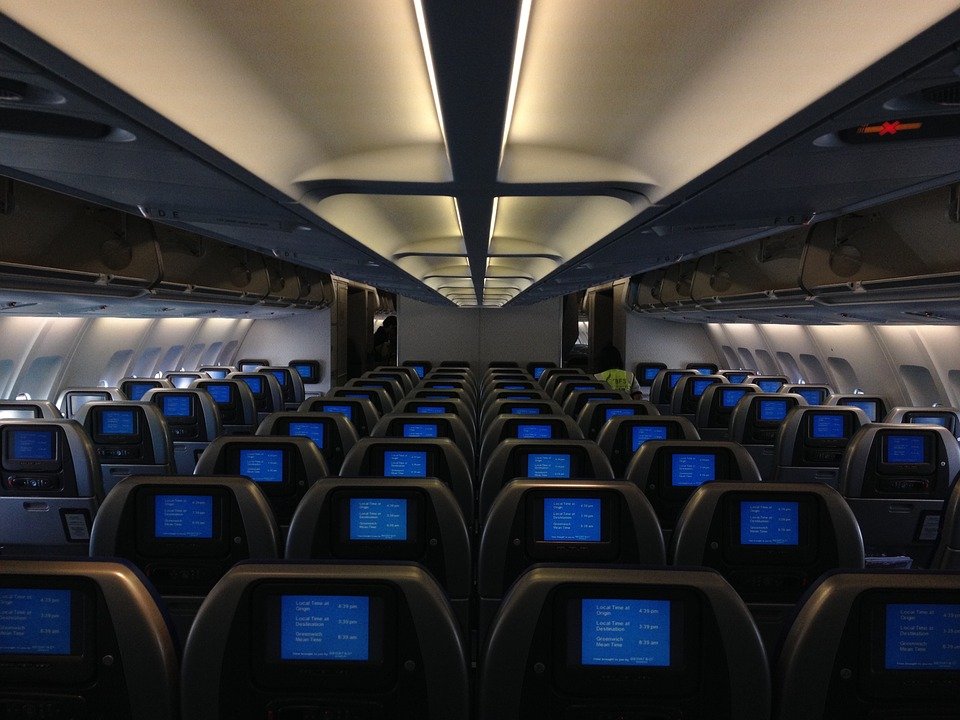
Noise, shuddering, rolling, turbulence, and other vibrations experienced during a flight are not natural movements of the human body. The body is constantly trying to stabilize itself, making you feel tired after a long flight.
Also Read: Why Does Traveling Make You Dehydrated?
The Psychological Factor
One cannot ignore the psychological aspect of long-distance travel. Already, the very concept of travel exhausts many people.
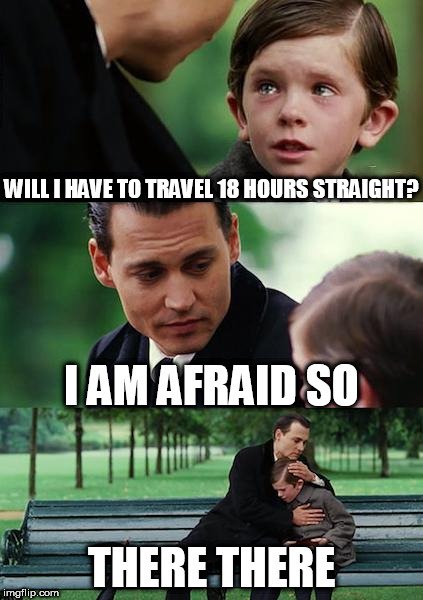
When you’re on a flight, you’re probably a little aware of yourself and your surroundings; there are strangers around you, and you’re unconsciously trying to stay out of their personal space. In other words, you’re constantly on “alert” or worried, which is not (most) people’s natural state of mind. This adds to the mental exhaustion of traveling for hours on a flight.
That’s why business class is so popular on flights: you get more space up there, and it’s much more comfortable. The business class aims to make you feel at home, so you’re rested and ready to work as soon as you get off the plane.
Also Read: Psychological Effects Of Space Travel: How Does Being In Space Affect The Psychology Of Astronauts?
Dealing With Travel Fatigue
Travel fatigue can be a drag, but by making a few changes to your travel routine, you can minimize its effects and recover more quickly.
Paying attention to your body’s needs is important to deal with travel fatigue. Eating a healthy diet of fruits, nuts, and vegetables and drinking plenty of water will help. Avoid alcohol and caffeine, which can worsen fatigue. Planning your trip and packing essentials like an eye mask, earplugs, snacks, and any necessary medications can make you mentally more prepared and eliminates the risk of last minute rush. Light exercises like short walks or gentle stretches will also help.
Travel fatigue is a common experience among frequent travelers. Whether by car, bus, or airplane, the human body experiences various physical and psychological factors that contribute to the feeling of exhaustion. To mitigate travel fatigue, staying hydrated, engaging in physical activity, and adopting healthy habits before, during, and after traveling are recommended.
Happy traveling!
Also Read: Why Do We Sometimes Feel Tired All Day, But Wired At Night?
Test your knowledge about travel fatigue

References (click to expand)
- H Nahvi. Evaluation of Whole-Body Vibration and Ride Comfort in a .... Auburn University
- https://apps.dtic.mil/dtic/tr/fulltext/u2/1056007.pdf
- (1937) Vibration Measurement in Flight - JSTOR. JSTOR
- (2006) Seat vibration in military propeller aircraft. The United States National Library of Medicine
- (2008) ANALYSIS OF IN-FLIGHT VIBRATION FOR A TURBO .... Clemson University
- H Nahvi. Evaluation of Whole-Body Vibration and Ride Comfort in a .... Auburn University
- (2022) Travelers' perceptions of jetlag and travel fatigue: A scoping .... Taylor & Francis Group
- Leatherwood, W. E., & Dragoo, J. L. (2012, November 9). Effect of airline travel on performance: a review of the literature. British Journal of Sports Medicine. BMJ.
